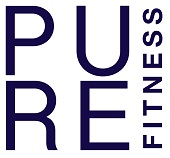In the world of fitness nutrition, it’s important to stay up-to-date with the regulations that govern the industry. But when it comes to the United Kingdom, have you ever wondered if there are any specific regulations that apply? Well, wonder no more! This article will shed light on the presence, or perhaps the absence, of UK-specific fitness nutrition regulations. So, buckle up and get ready to explore the realm of fitness nutrition in the UK!
Table of Contents
ToggleOverview of Fitness Nutrition Regulations in the UK
Introduction to fitness nutrition regulations
In the United Kingdom (UK), fitness nutrition regulations play a vital role in ensuring the safety and well-being of consumers. These regulations are put in place to govern the production, labeling, advertising, and sale of fitness nutrition products, with the aim of protecting consumers from misleading claims, harmful substances, and poor quality products. Fitness nutrition regulations encompass various aspects, including food labeling and packaging requirements, safety and quality standards, supplements and additives regulations, advertising and marketing regulations, sports nutrition and doping regulations, regulation of online sales, as well as regulatory compliance and enforcement measures.
Importance of regulations in ensuring consumer safety
Regulations pertaining to fitness nutrition in the UK are of utmost importance in safeguarding consumer safety. They ensure that fitness nutrition products meet certain standards and requirements to mitigate health risks that may arise from improperly formulated or labeled products. These regulations provide consumers with accurate and transparent information about the nutritional content, potential allergens, and safety of the products they consume. By enforcing regulations, the UK government and regulatory authorities aim to foster consumer trust, protect public health, and promote responsible business practices within the fitness nutrition industry.
Organizations responsible for regulating fitness nutrition in the UK
Several organizations in the UK are entrusted with the responsibility of regulating fitness nutrition to safeguard consumer interests. These organizations work collaboratively to set and enforce standards, conduct inspections, and take necessary actions to ensure compliance with the regulations. The key organizations responsible for regulating fitness nutrition in the UK include the Food Standards Agency (FSA), the European Food Safety Authority (EFSA), the Department of Health and Social Care, Trading Standards, and the Advertising Standards Authority (ASA). Each organization has its own specific roles and responsibilities in regulating different aspects of fitness nutrition.
Legislation and Regulatory Authorities
Food Standards Agency (FSA)
The Food Standards Agency (FSA) is a government body in the UK that is responsible for food safety and hygiene. The FSA plays a crucial role in regulating fitness nutrition by setting standards, conducting research, and issuing guidance on various aspects of food safety, including fitness nutrition products. The FSA works closely with other regulatory authorities and stakeholders to ensure that fitness nutrition products meet the necessary safety requirements and are accurately labeled.
European Food Safety Authority (EFSA)
The European Food Safety Authority (EFSA) is an independent scientific agency that provides scientific advice and risk assessments to the European Union (EU) member states. Although the UK has left the EU, the EFSA’s assessments and recommendations regarding fitness nutrition products still hold significance in the UK. The EFSA’s scientific expertise and research contribute to the development of evidence-based regulations and guidelines for fitness nutrition products in the UK.
Department of Health and Social Care
The Department of Health and Social Care is a government department in the UK that focuses on promoting public health and social care services. This department plays a critical role in the regulation of fitness nutrition by setting policies, advising on health-related matters, and ensuring consumer safety. The Department of Health and Social Care works in collaboration with other regulatory authorities to develop and implement regulations that protect the health and well-being of the UK population.
Trading Standards
Trading Standards is a local government service in the UK that enforces consumer protection legislation. They are responsible for monitoring and regulating fitness nutrition products to ensure compliance with relevant laws and regulations. Trading Standards officers conduct inspections, investigate complaints, and take enforcement actions against non-compliant businesses. Their role is crucial in maintaining a fair and safe market for fitness nutrition products in the UK.
Advertising Standards Authority (ASA)
The Advertising Standards Authority (ASA) is a self-regulatory organization that oversees advertising practices in the UK. They ensure that advertising of fitness nutrition products is truthful, accurate, and does not mislead consumers. The ASA sets guidelines and standards for marketing claims, endorsements, and social media influencer practices. By monitoring and taking action against misleading advertising practices, the ASA contributes to the overall transparency and reliability of fitness nutrition products.
Food Labeling and Packaging Requirements
Mandatory labeling information
Fitness nutrition products in the UK are required to provide certain mandatory labeling information to assist consumers in making informed choices. This includes the product name, ingredient list, net quantity, and the name and address of the manufacturer or distributor. Additionally, labels must indicate any warnings or precautions, storage instructions, and preparation directions if applicable. The mandatory labeling information ensures transparency and helps consumers identify and understand the products they are purchasing.
Nutritional labeling requirements
Fitness nutrition products in the UK must also provide nutritional labeling information. This includes the energy value (calories), carbohydrates, sugars, fat, saturated fat, protein, and salt content per serving. The nutritional information allows consumers to assess the nutritional composition of the product and make informed decisions based on their dietary needs and preferences. The accuracy and consistency of nutritional labeling are essential for consumer safety and well-being.
Allergen labeling
To protect individuals with allergies or intolerances, fitness nutrition products in the UK must clearly label any ingredients that may cause an allergic reaction. This includes major food allergens such as eggs, milk, nuts, fish, shellfish, wheat, and soy. The presence of allergenic ingredients must be clearly indicated on the packaging to help consumers with allergies or intolerances avoid products that could potentially harm their health. Allergen labeling is a crucial aspect of fitness nutrition regulations to ensure consumer safety.
Marketing claims and labeling regulations
Marketing claims on fitness nutrition products in the UK are subject to regulations to prevent misleading or false advertising. Companies must ensure that their claims are substantiated and accurate based on scientific evidence. Marketing claims should not exaggerate the health benefits of the product or make claims that are not supported by scientific research. These regulations help consumers make informed decisions and prevent deceptive practices within the fitness nutrition industry.
Safety and Quality Standards
Food Safety Act
The Food Safety Act is a key legislation in the UK that ensures compliance with safety standards for all food products, including fitness nutrition. The Act sets out requirements for food businesses to handle, produce, and market safe and hygienic food products. Compliance with the Food Safety Act is essential to prevent foodborne illnesses and ensure that fitness nutrition products are safe for consumption.
Hazard Analysis and Critical Control Points (HACCP) system
The Hazard Analysis and Critical Control Points (HACCP) system is utilized in the UK to identify and control potential hazards in the production and distribution of fitness nutrition products. This risk-based approach helps businesses assess and manage hazards that could affect food safety. By implementing the HACCP system, fitness nutrition companies can ensure that their products are produced and handled safely, minimizing the risk of contamination or safety hazards.
Good Manufacturing Practice (GMP) guidelines
Good Manufacturing Practice (GMP) guidelines provide a framework for the production and quality control of fitness nutrition products. These guidelines address various aspects of the manufacturing process, including hygiene, equipment maintenance, personnel training, and documentation. Adherence to GMP guidelines is crucial to maintain consistent product quality, prevent contamination, and meet regulatory requirements.
Quality certifications for fitness nutrition products
Several quality certifications are available for fitness nutrition products in the UK, such as the British Retail Consortium (BRC) Global Standard for Food Safety and the International Organization for Standardization (ISO) certifications. These certifications indicate that a company has implemented quality management systems and met specific standards. Obtaining quality certifications demonstrates a commitment to high-quality products and enhances consumer confidence in fitness nutrition products.
Supplements and Additives Regulations
Regulation of dietary supplements
Dietary supplements, including those related to fitness nutrition, are regulated as foods in the UK. The FSA and other regulatory authorities set requirements and guidelines for the composition, labeling, and safety of dietary supplements. The regulation ensures that dietary supplements meet certain standards and do not pose health risks to consumers.
Prohibited and restricted substances
Fitness nutrition regulations prohibit the use of certain substances in products intended for consumption. These substances may include illegal drugs, certain pharmaceuticals, and other ingredients that are deemed unsafe or have potential health risks. Additionally, there may be restrictions on the use of certain additives, flavorings, or artificial colors in fitness nutrition products to protect consumer health.
Maximum limits for vitamins and minerals
To prevent excessive intake of certain vitamins and minerals, fitness nutrition regulations in the UK establish maximum limits for these nutrients in food supplements. This ensures that supplements do not pose a risk of toxicity or adverse health effects due to excessive intake. Consumers can rely on these limits to choose supplements that align with their recommended dietary allowances without compromising their health.
Advisory warnings for high-risk supplements
Fitness nutrition regulations may require specific advisory warnings for high-risk supplements. These warnings advise vulnerable populations, such as pregnant women, breastfeeding mothers, and individuals with certain medical conditions, to consult healthcare professionals before consuming certain supplements. The inclusion of advisory warnings helps promote responsible use of fitness nutrition products and protects the health of individuals who may be at a higher risk.
Advertising and Marketing Regulations
Advertising Standards Authority (ASA) guidelines
The Advertising Standards Authority (ASA) has established guidelines for advertising fitness nutrition products in the UK. These guidelines ensure that advertisements are legal, decent, honest, and truthful. Advertisements must not mislead or deceive consumers regarding the characteristics, effects, or benefits of fitness nutrition products. The ASA closely monitors advertising practices and takes necessary actions against non-compliant advertisements.
Health claims and medical endorsements
Fitness nutrition regulations in the UK dictate that health claims made on fitness nutrition products must be supported by scientific evidence and authorized by the relevant regulatory authorities. Companies must not make claims that imply medical endorsements or suggest that a product can prevent, treat, or cure a disease without appropriate authorization. These regulations protect consumers from false or exaggerated health claims and promote responsible advertising practices within the fitness nutrition industry.
Misleading advertising practices
Misleading advertising practices are strictly regulated in the UK to protect consumers from deceptive marketing tactics. Fitness nutrition products must not be promoted in a way that misleads consumers about their nutritional content, health benefits, or efficacy. Regulations seek to prevent misleading claims, images, or endorsements that may entice consumers to make uninformed or potentially harmful purchasing decisions.
Social media influencer guidelines
With the rise of social media marketing, guidelines have been developed to regulate the promotion of fitness nutrition products by influencers. Social media influencers must clearly disclose if they are being paid or receiving products for endorsement. They must not make unsubstantiated claims or promote excessive consumption of fitness nutrition products. These guidelines aim to maintain the integrity and transparency of influencer marketing and protect consumers from misleading content.
Sports Nutrition and Doping Regulations
World Anti-Doping Agency (WADA)
The World Anti-Doping Agency (WADA) sets international standards and regulations for anti-doping practices in sports. While not specific to the UK, these regulations are highly influential in shaping the UK’s approach to sports nutrition and combating doping. Compliance with WADA’s regulations ensures fair competition and promotes the integrity of sports.
UK Anti-Doping (UKAD) guidelines
UK Anti-Doping (UKAD) is the national anti-doping organization in the UK. They have established guidelines and regulations for sports nutrition to ensure compliance with WADA’s standards. These guidelines address the use of prohibited substances and methods, therapeutic use exemptions, and proper procedures for testing and reporting. By adhering to these guidelines, athletes and sports nutrition companies can promote clean and ethical sporting practices.
Prohibited substances and methods
Sports nutrition regulations in the UK strictly prohibit the use of certain substances and methods that are considered performance-enhancing or pose a threat to the integrity of sports. These substances may include anabolic steroids, stimulants, growth hormones, and other agents that could provide athletes with an unfair advantage or pose health risks.
Sports nutrition product testing
To ensure compliance with regulations and prevent the presence of prohibited substances in sports nutrition products, testing may be conducted by regulatory authorities or third-party laboratories. Testing helps identify any non-compliant or contaminated products. Manufacturers and distributors of sports nutrition products are responsible for ensuring the safety and quality of their products through regular testing and adherence to regulatory standards.
Regulation of Online Sales
Distance Selling Regulations
Distance Selling Regulations in the UK govern online sales of fitness nutrition products and provide certain protections for consumers. These regulations include requirements for clear product information, cancellation rights, and secure payment systems. Online sellers must provide consumers with accurate and transparent information about the products they are purchasing and ensure a fair and secure online shopping experience.
E-commerce regulations
E-commerce regulations complement existing consumer protection laws by addressing specific issues related to online sales. These regulations cover aspects such as privacy and data protection, electronic contracts, and customer dispute resolution. Compliance with e-commerce regulations is essential for online sellers of fitness nutrition products to maintain customer trust and protect consumer rights.
Age verification and age-restricted products
Fitness nutrition products may be age-restricted due to their ingredients or intended use. Online sellers must implement effective age verification systems to prevent the sale of age-restricted products to minors. This includes mechanisms such as age verification checks upon purchase and clear notifications of age restrictions. Age verification measures help ensure responsible sales practices and protect the well-being of young consumers.
Consumer rights and protection
Online sellers of fitness nutrition products in the UK must comply with consumer rights and protections outlined in legislation such as the Consumer Rights Act. These rights include the right to clear and accurate product descriptions, the right to a refund or replacement for faulty products, and protection against unfair contract terms. Compliance with consumer rights and protections is essential to maintain consumer trust and ensure a positive online shopping experience.
Regulatory Compliance and Enforcement
Inspections and audits
Regulatory authorities conduct inspections and audits of fitness nutrition businesses to ensure compliance with regulations. Inspections may involve assessing manufacturing facilities, reviewing documentation, and sampling products for analysis. Regular inspections and audits help identify non-compliance, maintain quality standards, and protect consumer interests.
Enforcement actions and penalties
In cases of non-compliance with fitness nutrition regulations, regulatory authorities have the power to take enforcement actions against businesses. These actions may include warning letters, fines, product recalls, or even legal action. Penalties for non-compliance are designed to deter non-compliant practices, protect consumers, and maintain a fair and safe market for fitness nutrition products.
Consumer complaints and reporting
Consumers play a crucial role in reporting non-compliant or unsafe fitness nutrition products to regulatory authorities. Regulators rely on consumer complaints and reports to identify potential issues and take necessary actions. Consumers are encouraged to report any concerns or complaints regarding fitness nutrition products to the appropriate regulatory authority.
Role of trading standards officers
Trading standards officers are responsible for enforcing fitness nutrition regulations at the local level. They monitor compliance, investigate complaints, and take enforcement actions against businesses engaging in non-compliant practices. Trading standards officers play a vital role in maintaining consumer safety and welfare, as well as promoting fair and ethical business practices in the fitness nutrition industry.
Challenges and Future Developments
Emerging trends in fitness nutrition
The fitness nutrition industry is continuously evolving, with emerging trends and innovations. These include advancements in plant-based, sustainable, and personalized nutrition, as well as the use of novel ingredients and technologies. Regulators face the challenge of keeping up with these trends to ensure that regulatory frameworks remain relevant and adaptable to new products and practices.
Potential gaps in current regulations
As the fitness nutrition industry evolves, potential gaps in current regulations may arise. New products or ingredients may not fit neatly into existing regulatory frameworks, leaving room for interpretation or a lack of guidance. Regulatory authorities need to proactively identify and address these gaps to protect consumer safety and ensure a level playing field for businesses.
International harmonization of regulations
Harmonizing fitness nutrition regulations at the international level is a key challenge for regulators. As the UK has left the EU, new agreements and collaborations will need to be established to ensure a harmonized approach to fitness nutrition regulations, especially concerning imports and exports. International cooperation is crucial to prevent discrepancies in standards and to facilitate the global trade of fitness nutrition products.
Consumer education and awareness
Consumer education and awareness play a vital role in ensuring the effectiveness of fitness nutrition regulations. Educating consumers about the importance of reading labels, understanding nutritional information, and recognizing misleading claims can empower them to make informed choices and protect their health. Increased awareness can also drive demand for responsible and transparent practices within the fitness nutrition industry.
In conclusion, fitness nutrition regulations in the UK are comprehensive and multi-faceted, encompassing various aspects such as food labeling, safety standards, supplements regulations, advertising practices, sports nutrition, and online sales. These regulations are crucial to ensuring consumer safety, fair market practices, and the integration of emerging trends within the fitness nutrition industry. Regulatory authorities, in collaboration with stakeholders, work diligently to develop, enforce, and adapt regulations to protect the health and well-being of the UK population and maintain consumer confidence in fitness nutrition products.








